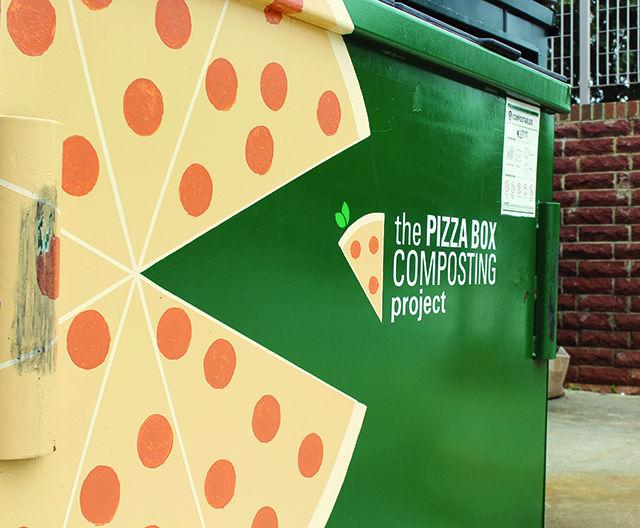Pizza is the staple food for college students all across the country, but most pizza eaters are forced to send their pizza boxes to the landfill because most recycling centers will not accept corrugated, greasy cardboard.
NC State solved this problem by creating the Pizza Box Composting Project, a joint effort between the Waste Reduction and Recycling Office and University Housing. Since the start of the program in the spring of 2014, students have sent more than 16,000 pizza boxes to be composted, according to Analis Fulghum, program manager of the Waste Reduction and Recycling Office.
The success of the program has gained national interest and was recently featured in an issue of The Wall Street Journal. Fulghum believes the attention from The Wall Street Journal will help the program expand and see even more success.
“I think it was a great article,” Fulghum said. “It helped illustrate the ways that the program is expanding.”
In its two years of existence, the program has expanded from having just two on-campus composting bins to having six on-campus bins and bins at Carter-Finley Stadium. The bins at Carter-Finley are a result of a new Carter-Finley composting program, which aims to make football games zero-waste events.
The program has also expanded to achieve one of its original goals: bringing compost back to being used on campus grounds.
“The grounds crew has already piloted several areas on campus that are using compost instead of chemical fertilizer,” Fulghum said.
The main area the compost is used is the athletic fields on Centennial Campus, according to Fulghum.
The project has also received attention from other universities looking to begin their own composting programs. Fulghum said that two universities, Miami University of Ohio and Grand Valley State University, attempted to start pizza box composting programs, but both failed because of the lack of student participation.
“There are two other campuses that I have seen pilot a pizza box collection program,” Fulghum said. “Theirs were started by students and didn’t get enough students to actually use the boxes. They ended up doing away with the program.”
While the program has seen great expansion, Fulghum said she still believes there is room for improvement. In the spring, a waste characterization study evaluated campus dumpsters and discovered at least one-third of what students put in dumpsters could be composted or recycled. This staggering discovery led the Waste Reduction and Recycling Office to consider bringing a recycling and composting facility on campus.
“We are conducting a feasibility study to see if we can bring a composting and recycling operation on campus,” Fulghum said.
Having the operation on campus could potentially allow the university to compost more efficiently and cut back on waste.
Fulghum eventually wants the composting program to include much more than pizza boxes. The members of EcoVillage, a Living and Learning Village located in Bragaw Hall that promotes sustainable living, are currently working to compost other items on campus.
“We are lucky enough to have one of the compost bins at Bragaw where we can use it, but EcoVillagers are looking forward to seeing more composting options on campus,” said Meghan Lobsinger, director of EcoVillage.
With the insurgence of Halloween and Thanksgiving pumpkins, the Waste Reduction and Recycling Office is allowing students to discard pumpkins in the pizza box composting bins until Nov. 25.








